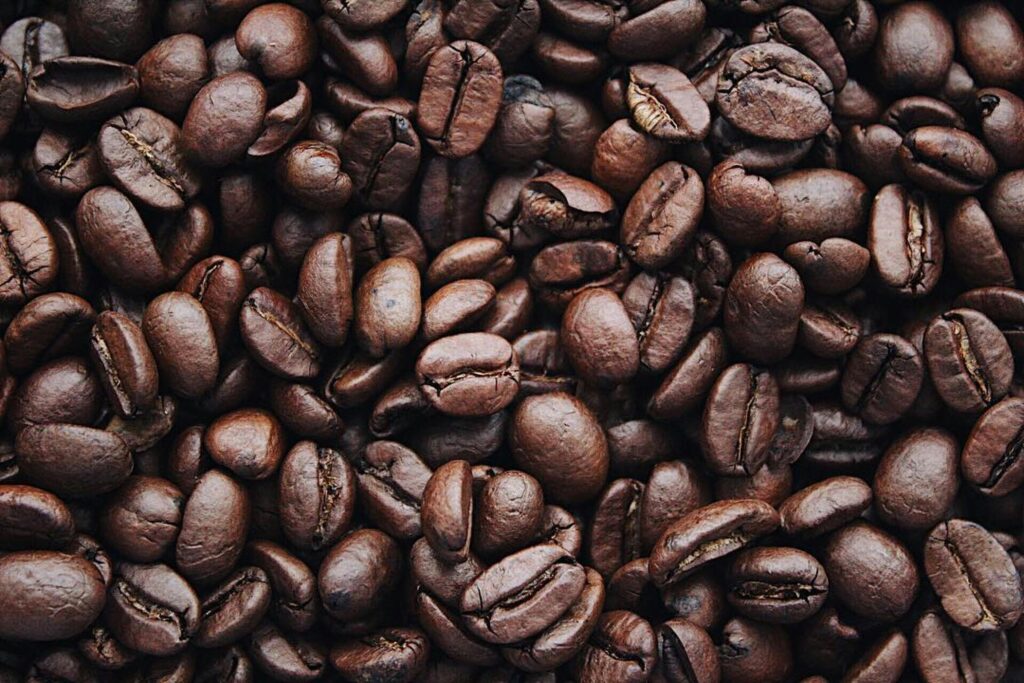Does sipping on a warm cup of coffee after your meals actually aid in digestion and help shed those extra pounds? This is a question many coffee lovers often ponder.

The Science of Digestion
Understanding digestion is key to grasping how coffee fits into the picture. Your digestive system works tirelessly to break down the food you consume, absorbing nutrients and eliminating what your body doesn’t need. This process can be influenced by various factors, including what you drink.
How Digestion Works
Digestion is a complex process that involves both mechanical and chemical breakdown. As you chew, food is mixed with saliva, which contains enzymes that begin the digestive process. Once swallowed, food travels down the esophagus to the stomach, where gastric juices further break it down. The nutrient absorption mainly occurs in the small intestine, where the digested food enters the bloodstream.
The Role of Stomach Acid
Coffee, particularly its caffeine content, stimulates the production of stomach acid. This increased acidity can aid in digesting proteins and breaking down food more effectively. However, too much stomach acid can lead to discomfort for some people, such as acid reflux or heartburn. Thus, moderation is essential.
Coffee and Its Digestive Properties
Let’s dive deeper into how coffee could potentially impact your digestion. Coffee, more than just a morning energizer, has unique properties that may facilitate the digestive process.
Caffeine: The Key Player
Caffeine, a known stimulant, increases basal metabolic rate and can promote gastric motility. This means it may help your stomach empty more quickly, which might enhance the overall digestive process.
The Impact of Coffee on Digestive Enzymes
Research suggests that coffee may boost the production of certain enzymes involved in digestion. For instance, coffee can stimulate digestive enzymes from the pancreas, thereby helping to break down fats and carbohydrates more efficiently.
| Aspect | Effect of Coffee |
|---|---|
| Gastric Motility | Increases stomach emptying rate |
| Enzyme Production | Stimulates digestive enzymes |
| Stomach Acid | May improve protein digestion |
Coffee’s Effects on Metabolism
Now that we have a grip on digestion, let’s tackle how coffee relates to weight loss. Weight management often revolves around metabolism, the process through which your body converts food into energy.
The Metabolism Connection
Caffeine is a well-known thermogenic agent, meaning it can increase energy expenditure. This rise in metabolic rate can help you burn more calories throughout the day. In simple terms, your body works harder to process food after you’ve had caffeine, even when you’re resting.
Reducing Appetite
Interestingly, some studies suggest that coffee may also help suppress appetite for a short period, which could aid in reducing your overall calorie intake. However, this effect may vary from person to person.
Timing Matters: When to Enjoy Your Coffee
One of the essential aspects to consider is the timing of your coffee consumption in relation to your meals.
Post-Meal Coffee: What to Expect
Drinking coffee after meals may be beneficial for digestion, primarily due to the reasons discussed earlier. However, it’s crucial to observe how your body reacts. Some people may feel relaxed and experience improved digestion, while others might feel bloated or uncomfortable.
Dosage and Moderation
Moderation is the name of the game. While a cup or two of coffee can provide benefits, excessive consumption can lead to adverse effects—think jitters, anxiety, or indigestion. Finding the right balance is key to maximizing benefits without discomfort.

Coffee Varieties and Their Effects
The variety of coffee you choose can also influence its effects on digestion and metabolism. Some coffee types may pack more benefits than others.
Black Coffee vs. Creamy Varieties
Black coffee is typically lower in calories than coffee with milk or sweeteners. If you’re looking to cut calories, sticking with black coffee could be more advantageous. Additionally, many health benefits attributed to coffee are often derived from its natural compounds, which can be diminished when you add ingredients like sugar or cream.
Specialty Coffee and Added Ingredients
If you’re a fan of flavored coffee or specialty lattes, keep in mind that many of these drinks can be laden with calories. Be mindful of how much cream and sugar you’re adding. Opting for lighter versions or natural sweeteners might be a good compromise.
| Coffee Type | Calories | Additional Benefits |
|---|---|---|
| Black Coffee | 2-5 calories | High in antioxidants |
| Latte (with milk) | 150 calories | Creamy, but higher in calories |
| Flavored Coffee | Varies (100-300+) | Often high in sugar and calories |
Potential Drawbacks of Post-Meal Coffee Consumption
While coffee may offer several benefits, it’s wise to be aware of possible downsides, especially when consumed after meals.
Acid Reflux and Stomach Discomfort
For those prone to acid reflux or gastrointestinal distress, coffee can exacerbate these issues. Pay attention to how your body reacts after consuming it post-meal. If you find discomfort, it might be wise to limit coffee to other times of the day.
Nutrient Absorption
There is some concern that coffee might interfere with the absorption of certain nutrients, such as calcium and iron. If you regularly drink coffee after meals, consider your overall dietary habits and consult a healthcare provider if you have concerns about nutrient absorption.

Mind Your Hydration
When you enjoy coffee, it’s vital to consider your hydration levels throughout the day.
Coffee as a Diuretic
While coffee is primarily a liquid, caffeine has a mild diuretic effect. This means that you might need to balance your coffee consumption with water intake. Staying adequately hydrated is essential for maintaining optimal digestive health and overall wellness.
Stacking the Benefits with Water
Pairing your post-meal coffee with a glass of water can help mitigate the diuretic effects and keep your body well-hydrated. It’s a small but effective strategy to support digestion without compromising on your coffee enjoyment.
Personal Preferences: Listening to Your Body
Every body is unique. It’s crucial to listen to your own responses when it comes to consuming coffee after meals.
Experimentation is Key
If you’re curious about how coffee impacts your digestion and weight loss goals, try experimenting with timing and portion sizes. You could start with a smaller cup after meals and observe how you feel—are you more energized, or do you notice any discomfort?
Observing Long-Term Effects
Take note of your everyday feelings and energy levels over time. A food diary or a simple notes app can be beneficial to track your experiences. You may find patterns that reveal insights into how coffee is really affecting your body.

The Bottom Line: Should You Drink Coffee After Meals?
So, what’s the verdict? Should you indulge in that cup of coffee post-meal? It really depends on your body’s response and your overall health goals.
Pros of Drinking Coffee After Meals
- Stimulates digestion: May help break down your food more efficiently.
- Metabolism boost: Can increase calorie burning.
- Appetite suppression: Might help you consume fewer calories temporarily.
Cons of Drinking Coffee After Meals
- Digestive discomfort: Some may experience reflux or bloating.
- Nutrient absorption concerns: Potential interruption in absorbing key nutrients.
- Hydration monitoring: May have a diuretic effect requiring increased water intake.
It’s essential to weigh the benefits against any potential drawbacks based on your personal preferences and how your body responds.
Conclusion
In conclusion, drinking coffee after meals can have both positive and negative effects on digestion and weight loss. It can stimulate your digestive system, boost your metabolism, and even suppress appetite for a short time. However, it’s crucial to approach this habit with mindfulness, taking note of how your body reacts. Ultimately, finding a balance that works for you will help you enjoy your coffee without compromising your digestive health or weight goals. Remember to stay hydrated, choose your coffee varieties wisely, and listen to your body’s cues. Your journey with coffee and digestion may just be starting!
